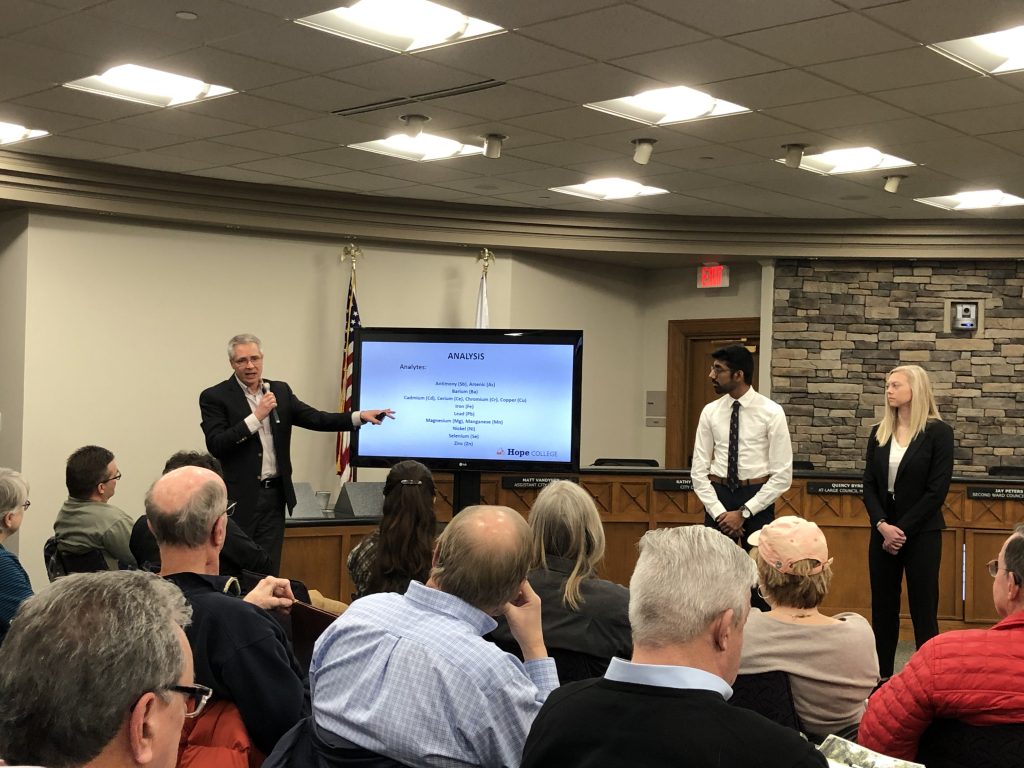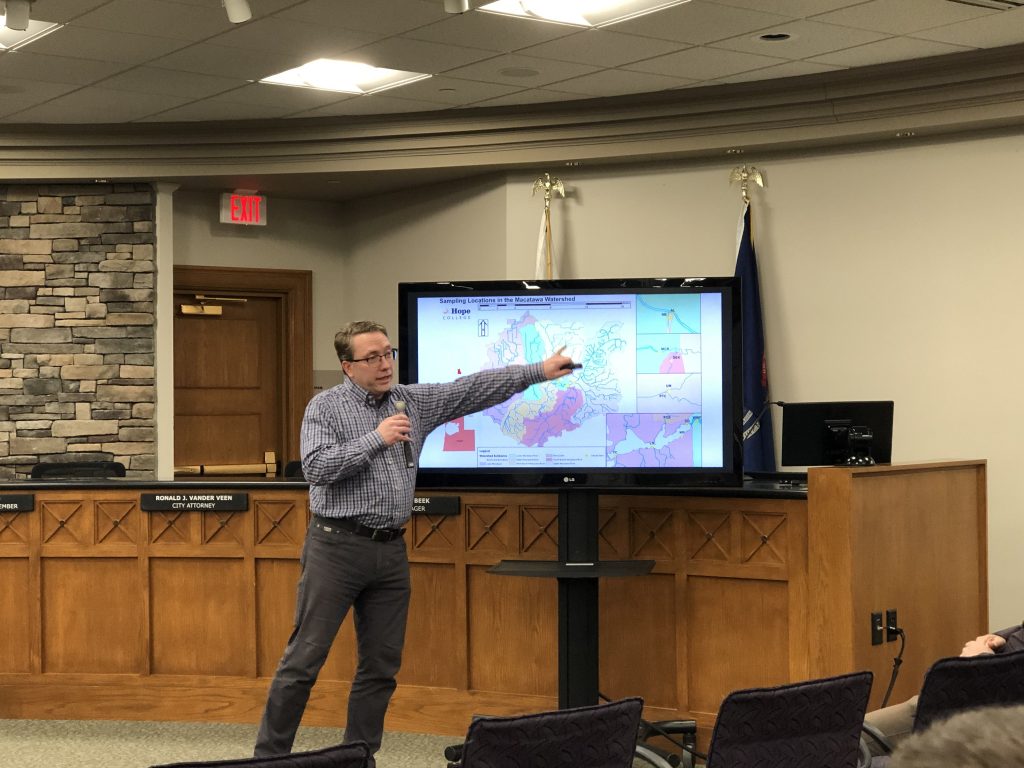By Kelly Goward, Macatawa Area Coordinating Council
Area residents can track the health of our watershed thanks to the on-going work of the Macatawa Area Coordinating Council. That collaborative organization has been seeking improvement of the Macatawa watershed since 1996 and recently held its Macatawa Watershed Annual Meeting.
This year, new information about plastics and microplastic pollution, overall water quality, heavy metals in the lake, light pollution, and rainfall composition has been made available, along with updates on water quality monitoring.
Research on plastics and microplastics found on West Michigan beaches, presented by Hope College Professor Brian Bodenbender, shows the majority of plastics and microplastics on beaches are found at the wrack line, the area where lake debris is deposited by the action of waves.
Water quality monitoring in the Day1 Watershed program, conducted in the Macatawa Watershed for several years, shows that some parameters exhibit cyclical patterns (changing with the seasons) and that there are differences between lake and stream water quality patterns, according to research presented by Hope College Professor Aaron Best. This long-term, high-frequency monitoring is conducted by students and looks at chemical, physical and microbial parameters.
And overall, while we are seeing improvements in water quality, Lake Macatawa is still not meeting desirable water quality goals, according to 2018 water quality findings shared by Maggie Oudsema, research assistant at the Grand Valley State University Annis Water Resources Institute. The Institute has been monitoring stream water quality near wetland restorations and lake water quality since 2015.
In addition, groups of Hope College Advanced Environmental Seminar students presented findings about the composition of rainfall in relation to wind direction in the Holland area and quantifying light pollution in the Holland area, while another group presented research quantifying heavy metals in the tissue of Lake Macatawa fish.
The information was presented at the 2019 Macatawa Watershed Annual Meeting at Holland City Hall on Dec. 5. Area residents can access the complete research findings on the MACC website at www.the-macc.org.
The MACC also presented the 2019 Watershed Stakeholder of the Year Award to the Ottawa Conservation District. Since 2001, this award has been presented annually to a person(s), entity or organization who has been a particularly strong supporter of the Macatawa Watershed or played an important role in advancing water quality goals.
The Ottawa Conservation District OCD (http://www.ottawacd.org/) provides technical assistance to all county residents on natural resource issues. Current programs include tree and native plant sales, invasive species management, critical dune assurances, agricultural risk assessment and environmental verification through the Michigan Agricultural Environment Assurance Program, forest management assistance, and watershed projects in several sub-watersheds of the Lower Grand River.
In 2019, the Conservation District reached out to the MACC to collaborate on planning and hosting a farm field day and an Ottawa County conservation partner event. These efforts demonstrated the
Conservation District’s collaborative nature and their recognition of the importance of partnerships.
The MACC was pleased to have partnered with the District on these events, and we look forward to continued collaboration on these and other efforts in the future.
Kelly Goward has been environmental program manager for the Macatawa Area Coordinating Council since 2012.
ABOUT THIS SERIES
Living Sustainably is a collection of community voices sharing updates about local sustainability initiatives. It is presented by the Holland-Hope College Sustainability Institute, a joint project of Hope College, the City of Holland and Holland Board of Public Works. Go to www.hope.edu/sustainability-institute for more information.
This Week’s Sustainability Framework Theme
Environmental Awareness/Action: Environmental education and integrating environmental practices into our planning will change negative outcomes of the past and improve our future.

watershed thanks to research by Grand Valley State University staff and Hope College professors and students.


